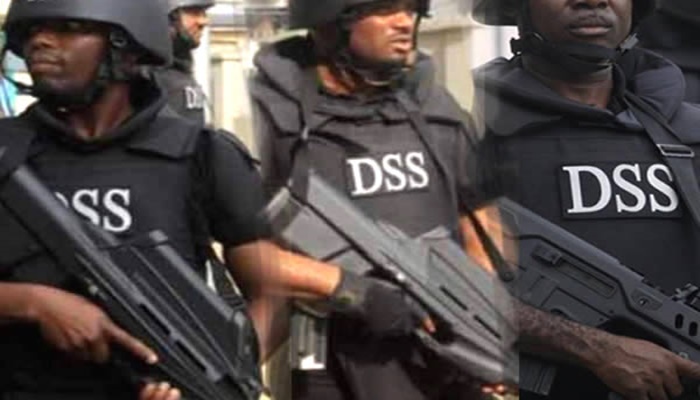
Lawyer to Nigeria’s secret police, the Department of State Services (DSS) Idowu Awo on Wednesday opposed the application for bail for four out of the 12 persons arrested in the residence of Yoruba nation agitator, Sunday Igboho on 1 July.
The DSS had arrested the persons described as aides or associates of Igboho during a raid on the Ibadan, Oyo State residence of the agitator and had kept them in custody then.
The DSS produced the 12 detainees before Justice Obiora Egwuatu on Wednesday after two orders of the court asking the agency to bring them to court.
The applicants had approached the court through their lawyer to seek for the enforcement of their fundamental rights enforcement.
But lawyer to the DSS said he will not oppose the application for bail for eight others, but he is opposed to bail for four others.
NAN notes that the applicants the DSS did not oppose their bail request include: Abdullateef Ademola Onaolapo, Tajudeen Irinloye, Diekola Jubril Ademola, Ayobami Donald, Uthman Opeyemi Adelabu, Olakunle Oluwapelumi, Raji Kazeem and Taiwo Opeyemi Tajudeen who are 1st, 3rd, 4th, 7th, 8th, 9th, 10th and 11th applicants respectively.
The service, however, urged the court not to grant bail to Amudat Habibat Babatunde aka Lady K, Abideen Shittu, Jamiu Noah Oyetunji and Bamidele Sunday listed as 2nd, 5th, 6th and 12th applicants in the application.
DSS lawyer argued that this was due to the level of the involvement of the four persons in the offences preferred against them.
He hinted that investigation so far had revealed high level of complicity on the part of the four detainees whose bail were opposed to by the service.
“As it is, the respondent is still investigating this matter and while will we not oppose bail to those applicants earlier mentioned, we seriously believe that it is not in the interest of justice and it will not serve the purpose of national security for these four applicants to be granted bail,” Awo said.
The lawyer further argued that the fear of the service was that if granted bail, they might not make themselves available for further investigation and possible prosecution.
He said the law also gave grounds on which a suspect could be detained beyond 24 hours.
According to him, Section 162 of Administration of Criminal Justice Act (ACJA), 2015, set out the conditions or circumstances upon which bail can be refused.
Awo said Paragraph C of the same section provided that where the applicant for bail attempted to intimidate witnesses or interfere with investigation, in such circumstances, bail could be refused.
He said there was credible information on how friends, families and associates of the four applicants were making contacts to the potential witnesses identified by the service.
“They have started making overture to them to compromise investigation and pressurising some not to turn up in the event they (the four applicants) will be charged.
“We believe strongly that these four applicants who are still needed for further investigation will jeopardise the ongoing investigation if released,” Awo told the court.
However, Mr Pelumi Olajengbesi, Counsel to the detainees ask the Court presided over by Justice Obiora Egwuatu to admit all his clients to bail unconditionally.
Olajengbesi told the court that contrary to the Section 35(4) of the Constitution of the Federal Republic of Nigeria which stipulated that a suspect be charged to court within 24 hours, the DSS had kept the applicants for about 34 days in detention.
He said that it took the order of the court for the respondent (DSS) to allow even the legal representatives of these applicants to have access to them
.He said the experience of the applicants in the facility of the respondent was “a bad taste.”
According to him, that the applicants were arrested for certain offences, after 34 days in the respondent detention, the applicants should have been charged to court.
He argued that to continue to keep the applicants in the custody of the service would amount to an affront on the constitution and infringement on their fundamental human rights as provided by the law.






